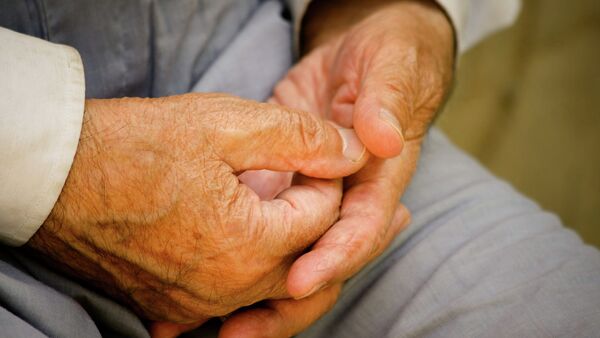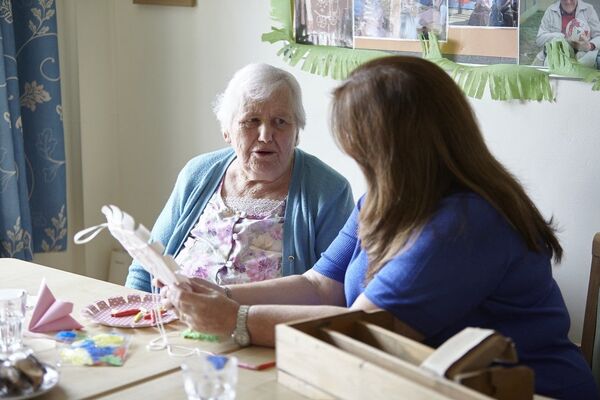Insurance companies are charging UK care homes up to 880 percent more for their premiums, which still won't cover coronavirus related matters, according to surveys of the sector.
Mike Padgham, chair of the Independent Care Homes Group (ICG), explains that many care home providers - which were already on the brink of closure - are unable to access affordable insurance cover in order to continue operating which may have grave consequences for residents if the government doesn't step in. Mr Padgham runs four separate care homes and provides voluntary support and representation to other providers via the ICG.
Sputnik: Explain the types of insurance premiums currently being charged for care homes.
Mike Padgham: Previously, Saint Cecilia's Care Group was paying £10,000 per year for insurance. When our insurance policy came up for renewal we discovered that our existing insurer was not going to insure care providers any more, due to the increased risk.
This meant we had to go into the market to see if we could find a new insurer. From those willing to provide insurance, we were quoted £98,000 – an increase of 880 percent or £41,000, an increase of 300 percent. It was only after a seven-day extension past our renewal date that we finally received a quote for £18,000, an increase of 80 percent.
Even with the increases in premium, these policies do not cover COVID-19 for the future.
Sputnik: Why exactly is this a problem from your perspective?
Mike Padgham: The issue is not only the astronomical increase in price for the premiums being quoted but the lack of insurers willing to cover care providers. Plus the insurance cover that we were able to get does not cover us against future incidences of coronavirus.
This puts care providers in a very difficult position. We have to have insurance and meeting the cost of such increased premiums is undoubtedly a strain. For some that huge extra expense, coming as it does at the most challenging of times, could be the last straw in their survival.
At the same time, if we cannot get insurance cover for coronavirus, how can we continue to take in people discharged from hospital with the virus, as the government wants us to do?
Sputnik: How many care homes are affected by these increases? Is this industry-wide?
Mike Padgham: This will undoubtedly impact upon the whole social care sector, as all providers will be facing similar situations as and when their insurance policies come up for renewal.
The National Care Association surveyed 68 homes that needed to renew their insurance and discovered that 68 percent of those surveyed had an increase in their insurance premium; 35 percent had to change insurance provider and 93.5 percent had no COVID cover included in their renewal.
This is why we need urgent government intervention, to avoid a loss of care provision for older and vulnerable people at a critical time.
Sputnik: What happens if you and other care providers can't pay these premiums?
Mike Padgham: We have little choice but to pay, as we cannot operate without insurance. The very real danger is that for some operators this extra cost, coming as it does on top of other rising costs, including those associated with tackling COVID-19 – like extra personal protective equipment, extra staffing costs and so on, could push them close to or over the edge. It would be up to local authorities to help support providers with extra-ordinary costs, but they are already cash strapped themselves and therefore may not always agree to pay the additional costs. Providers will have to cut costs, which isn't always an option. Those already struggling could decide it is no longer viable to continue operating. This would result in a loss of care provision in the sector at a time when the need is greatest and demand rising.
Sputnik: Presumably you can see the logic of such high premiums, considering the increased risk COVID-19 now poses to care homes and their residents?
Mike Padgham: Of course, we have some sympathy with insurers, because they're worried about the risks. However, it does seem unfair that we are being asked to pay huge increases in premium but also have cover for COVID-19 removed. We are being heavily penalised twice. This is why we need the government to intervene and support the care sector.
Sputnik: You've been asking for assistance from the government. What exactly would this look like?
Mike Padgham: The government has indemnified the NHS and we want the government to help the social care providers too. They would indemnify providers from any claims made by staff or relatives and residents relating to COVID-19. This would lower the risk for insurers and therefore bring premiums down. It would also give providers more confidence to accept admission from hospitals. This is vital for the NHS to operate at a safe capacity level, which will be incredibly important going into this winter, especially if, as predicted, there is a second wave of coronavirus.
We want to play our part to help the government if a second wave of coronavirus does come, to admit people and to help them. But as things stand we won't have cover against coronavirus. So we need the government to support social care, as it has the NHS, over this.
The government says 'we're all in this together' but in reality some of us are and some of us aren't. At the moment, social care has been left out and forgotten again.






